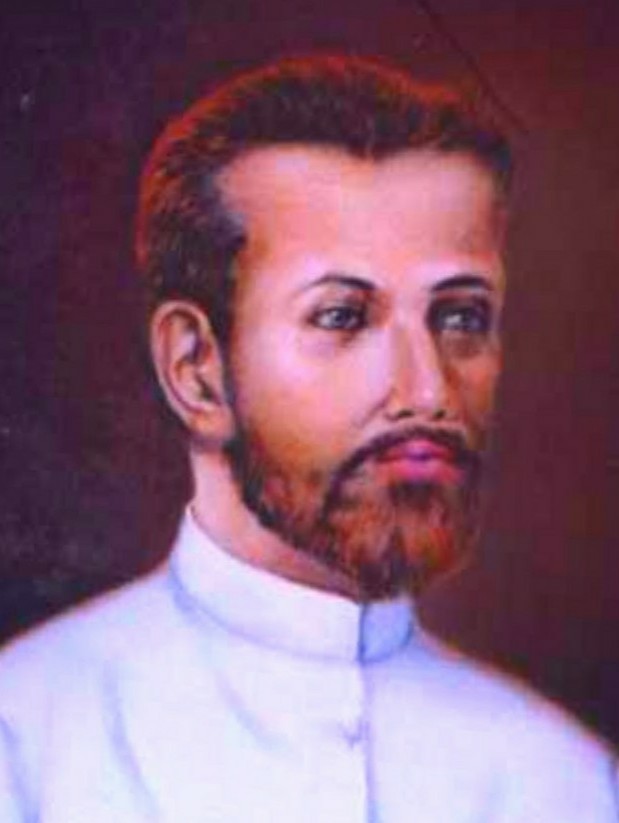 |
| Fr. Johann Ernst von Hanxleden, S.J. |
The
300-years-old Sanskrit and Malayalam books penned by famed 18th century
Jesuit priest Fr Johann Ernst Hanxleden, popularly known as Arnos Padre,
will soon get English versions. Fr Arnos, who arrived in south India as part of his missionary work, wrote a number of books including 'Puthan paana' (New Hymn), Devamatavinte Vyakula Prabandha ('poem on the Distress of the Divine Mother'), Umma Parvam (Epic Song on Divine Mother') in regional languages. Indologists
Christophe Vielle and Dr Jean Claude Muller said here the other day
that they were planning to bring out an English version of these books. His 'Chaturandhyam' (mystic epic on 'Four Ends of Man') and 'Janova Parvam' (Epic Song of Saint Genevieve) would also be rendered in English, they said. They
said a team of scholars from Belgium and Luxemburg, in collabouration
with the Arnos Padre Academy here, was planning to promote Arnos Padre's
linguistic and poetic achievements. According to historians,
the priest arrived in Surat in western India in 1700 and later proceeded
to Kerala with the intention of combining missionary work with learning
Sanskrit and Malayalam. He later founded Arnos House and Forane Church at nearby Veloor in 1724 and was the vicar there for over 20 years. During
his stay, he authored many books in Sanskrit and Malayalam and
publicised the importance of Vedic literature in Europe, when learning
Sanskrit was taboo for Non-Brahmins. The church at Veloor and
his house, with priceless murals of immense architectural value, were
declared monuments in May 1994 under the Kerala Ancient Monuments and
Archaeological Sites and Remains Act, 1968. To promote the place
of activity like Pazhuvil where he died in 1732, Veloor, Ambazhakad and
Sampaloor, very precise Google maps were prepared last year, Vielle
said. They would be converted into tourists' attractions in due
course for indologists, scholars and researchers for knowing India's
culture and heritage, the scholar added.
Link (here) to The Times of Oman










1 comment:
"publicised the importance of Vedic literature in Europe". Yes...in the period leading up to the so-called "age of enlightenment" and eventually institutionalized atheism, Vedic literature is quintessential...far much more than say, the gospels. Right? I'm thinking Kerala is still Christian DESPITE the efforts of such...priests.
Post a Comment